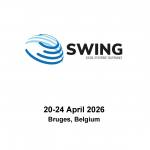RESEARCH SEMINAR: Coordination Processes as Informal Power Resources: Comparative Study of Member States’ National Coordination Apparatus With Their Bargaining Satisfaction in the Council of the EU


Clement Perarnaud
Visiting Researcher, the Institute for European Studies at the Vrije Universiteit Brussel
Clément Perarnaud, Visiting Researcher at the Institute for European Studies at the Vrije Universiteit Brussel, will present his paper, which will be following by commentary from Prof. Dr. Samuel Standaert, Professor in Economics at Ghent University and Professorial Fellow at the United Nations University - CRIS, in Bruges.
Introduction
This article contributes to the literature on the determinants of member states’ bargaining success in the EU, by exploring the role of the coordination apparatus mobilized by member states at national and European level as part of Council negotiations.
In exploring determinants of bargaining success, the relationship between informal power resources and bargaining success remains understudied, despite a number of research illustrating how states’ informal power resources can support their success in the Council. States’ informal power resources refer for instance to the resources of their staff and efficiency of their administration. Both the unique works of Naurin on member states’ network capital in the Council, and Panke (2011) on the strategies of small states in the Council support the notion that such informal power resources do matter. But other qualitative and quantitative works have offered puzzling conclusions on the role of these resources (Bailer, 2004) and on the extent individual capacities can play a significant role in shaping Council outcomes (Kassim, 2000).
Thursday 25 June 2020
14.00 - 15.30 CET
Virtual
Register
*Your data will not be used for anything else than sending information about this seminar, and the form and its data will be destroyed within 24 hours after the seminar has concluded.
Upcoming Events
Similar Events
No events found.


